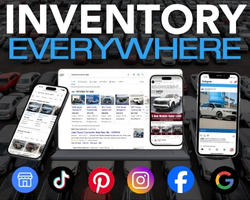Who owns the customer data, in your dealership’s DMS?
“I do, of course!” and depending on your perspective, you may be right.
Dealers could emphatically answer that question, but what about DMS providers? From their perspective, they might feel they have data ownership since their systems warehouse it. If you live on the OEM side, you may feel you have ownership of the data. After all, it’s your product customers are buying through dealerships that you grant franchises to.
For purposes of this article, let’s consider customer data in its purest form; un-appended third party data and un-processed to derive a new data set (more to come on this). For Example – combining customer transaction data with search data could create an entirely new data set. This does not typically happen within the DMS system involving yet another data vendor. Who owns that data?
The war for data ownership has been brewing for a while and is now at full boil.
The stakes are high with potential impact to rival anything the industry has ever been challenged with. To the victor, huge revenue potential with severe impact to the loser(s).
From each perspective, there is an argument to be made for data ownership, each unique.
The OEM Perspective
OEM’s may view themselves as “originators” of purchase customers and therefore feel they should ultimately own the data. Dealers have no customer without a product to sell. Product development driven by understanding of customer’s needs initializes interest in a dealer’s product line. Though dealers facilitate the sale of a vehicle, it’s often the OEM marketing platforms delivering customers to the dealerships.
Understanding customer’s changing desires, access to sales and service history and satisfaction with the dealer network are all business imperatives requiring free access to deep levels of customer data. Most importantly, the ability to stay in contact through the ownership cycle aids re-purchase intention.
What’s at stake? Revenue implications underline the importance of owning this data with downstream revenue opportunities like finance products, subscriptions to services and re-purchase.
The DMS Provider Perspective
DMS providers warehouse and resell data to others – Dealers have long since granted them this opportunity. As customer data resides on their systems and access to those systems are controlled by the providers, DMS providers believe it to be theirs.
For the DMS providers, changing business dynamics make for stormy seas to navigate. With a legacy business model that relies on long term contracts, proprietary hardware and software interfaces outdated by today’s standards, dealers are less satisfied with the status quo and are beginning to challenge this model.
[Tweet “Reselling customer data, with a presumption of ownership, is the life jacket of a DMS Provider.”]
What’s at stake? Perhaps survival. DMS providers see the revenue potential. Licensed third-party vendors have seen their costs triple in the last few years with more price increases on the way. This is a hot button for everyone yet the market seems to have absorbed this additional cost. Further revenue schemes, however, are on the horizon.
The Dealer Perspective
Dealers believe they own the data and they make a good argument for it. Their marketing and retention efforts attract the customer. Dealership staff transact the sale and are responsible, ultimately, for retention and customer satisfaction. No data makes it into any system without starting at the dealership.
Revenue implications are just as important from the dealer’s perspective and generally aligns with that of the OEM. Downstream revenue opportunities and repurchase being the biggest elements of the profit opportunity.
What’s at stake? Dealers can certainly access customer data now, right? True, but using that data in new, creative ways are in jeopardy. In a changing customer environment, new tools designed to increase customer engagement rely on access to dealership data. With costs imposed by the DMS providers, this ultimately costs the dealer or vendor more.
Other Concerns
- Expressed in other articles on the topic are concerns around data security. Liability for a data breech is enormous and few have the proper coverage. Add lack of control over what third-party vendors may use the data for, and it’s a recipe for a sleepless night.
- Increased fees and added restriction for dealers to access their own data can only cause added heartache…and it’s just not good for the business.
- Finally, there are a host of legal implications around ownership of data, free trade and competition more numerous and complex to discuss here.
More to follow on all of these topics….
So who owns the customer data?
Legally, the duty to secure data is the responsibility of the dealer. Dealers have mostly granted access and use rights to DMS providers – often without knowing what they have agreed to.
It’s my view that dealers own their data though the OEM’s have a stake in this too – Dealers and OEM’s share a common business goal of improving customer engagement and building longer-term customer equity – to do this, they must have access to their own data, without restriction or excessive fees. Ultimately, the customer is the one that benefits from more timely and relevant communication.
Restricting access to data may work as a short-term solution to a business problem but cannot hope to be a “win” for anyone long term. Raising fees and restricting access can only increase challenges by competitors and stakeholders as awareness increases on this issue. A “scorched earth” legal battle can only damage everyone.
Let’s step back from the abyss before we jump in.
Who will Win, and who will Lose the data ownership battle?








